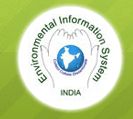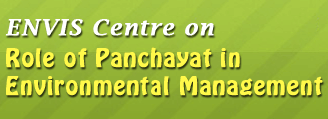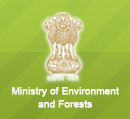| |



 

|
|
|
|
|
| Panchayat, Environment and Related Issues |
Document and Data of Rajiv Gandhi Foundation
(2006-07) in Panchayat, Environment, and related issues
Natural Resource Management:
- Programme Vision: Water scarcity is increasing throughout India and is likely to increase further with global warming. Growing competition for this precious resource has pushed large swathes of rural communities towards impoverishment and could threaten equitable and sustainable development, ecological balance and political stability. Water security is the key to food security. Rural communities need to be empowered to generate water resources in eco-friendly ways.
- Highlights 2006-2007:
- Rajasthan
- 26 water-harvesting structures completed, work in progress at seven others.
- Jamwa Ramgarh
Project on ‘Strengthening Local Governance of Natural Resources’ commenced in three panchayats of Jamwa Ramgarh block, Jaipur district.
- Two Cattle Development centres established to serve the 28 villages of Jamwa Ramgarh block.
- 41 women SHGs formed and members trained.
- 139 members of 17 Jal Samitis were trained in collective decision making for management of local natural resources and effective record keeping.
- Karnataka
Watershed project in three villages of Aurad taluka, Bidar district in partnership with a local NGO OUTREACH completed.
- 2000 hectares treated.
- Water availability increased through ground water recharge from earlier 6 months to 10 months
- Agricultural productivity of Sorghum increased by 30 per cent
- The targeted small and marginal farmers’ food security enhanced
- Rs.1.38 lakhs has been mobilized from the communities towards post-project maintenance fund (watershed Maintenance Fund)
Education and Literacy:
- Programme Vision: The mission is to support projects to
- Sustain literacy skills
- Foster quality in education
- Encourage education of girls, tribals and minorities
- Promote low cost good quality children’s literature.
- Highlights of 2006-2007:
- Village and Slum Libraries:
- 89 new libraries establish in 7 states under the Village Library programme (17 with grants from Good Gifts, U.K), taking the total to 1411 libraries in 22 states. Ongoing support to 26 libraries.
- 68 book grants with grants with grants from Good Gifts, UK
- Development of modules for training librarians in educational activities with children; 9 trainings conducted for librarians.
- Quality of Education Programmes: Kashmir Initiative for quality Education.
- A meeting entitled ‘ Towards Child Centred Quality Education in J & K’ organised in Jammu to discuss the finding of the studies undertaken in collaboration with MHRD and Sarva Shiksha Abhiyan, J & K.
- Series of workshops conducted on ‘Discovering Srinagar’ exploring culture and history, life style, built heritage, art and craft, flora and fauna of Srinagar.
- Two days writers’ workshop organised with the Department of Kashmiri, University of Kashmir to encourage young writers
- Instituted 20 Awards for Creative writing in Kashmiri, Urdu, English between the age group of 16 to 35 years of age
- Children’s Film Festival organised in Srinagar. 10 national and international award-winning films screened.
- Improved Learning Environment in Schools: Building as a Learning Aid (BaLA):
- Promotion of child friendly school building designs for government elementary schools with SSA in many states
- Orientation and training of engineers and teachers for participatory school design development on a pilot basis in 14 districts of Karnataka and 6 districts of Jammu and Kashmir.
- Books for Children:
- 26 books in Hindi and five other languages printed for early readers.
- Development of a user-friendly database on children’s literature with validated information on 710 books in Hindi.
- Area focused village libraries pilot programme:
- Ten library resource centres created each with more than 1000 books, educational, sports and science material, and large number of periodicals.
- Activities with children and adolescents like story telling, creative writing workshops, environment awareness, craft, popular science, sports, recreation and adventure.
- Non-formal education and life skills training for out of school children and adolescents
- Capacity Building training of village coordinators, supervisors and volunteers.
- Integrated development programme in Jamwa Ramgarh:
- Twelve educational centres established in 12 villages across three panchayats
- Three Nodal Centres established in the three panchayats of Raisers, Thalli and Neemla
- Remedial classes for children studying in classes 2-3 to help school going children with learning difficulties
- Bridge classes started for children dropped out of school
- Regular training and capacity building for the teachers, field staff and volunteers.
- Educations of Muslim Girls:
- Project EDGE, for education and vocational training of 388 adolescent Muslim girls, in Hyderabad old city.
- Project Darakht-e-lim in slums of Jogeshwari in Mumbai, for education of Muslim girls and literary and legal aid cell also established.
- Project VISION for Muslim weaver community in Naki Ghat area of Varanasi for education, child rights and awareness issues such as health, immunization, birth registration etc.
Woman and Child Development.
- Programme Vision: We believe that women and children should be full participants in the development process and our aims to
- Support children and communities affected by conflict and natural calamities.
- Empower disadvantaged women through greater livelihood options.
- Rehabilitate street children.
- Promote women’s leadership in sanitation.
- Highlights of the year 2006-2007:
- Interact I: A total of 12 children were identified this year, 9 from Chattisgarh for the first time making a total of 780 countrywide.
- Interact II: Provided support to 14 children for post-school education.
- Riot-affected children: Gujrat
Continued educational support to 57 children affected by violence in Gujrat; assistance for higher education and medical care to five others.
- Workshops for children in Northeast, A & N and Ahmedabad.
Workshops organised for children in Manipur, Nagaland, Nancowry islands and Ahmedabad.
- Elimination of Child Labour
Initiated a programme in district Sonebhadra, UP to restore rights of the child to education and development and initiate a process of elimination of child labour.
- Support to street children
Continued support to the ongoing programme of safe shelter and rehabilitative skills to 50 children in Indore, 155 in Bhopal.
- Skill building programmes
Partnered with organisations in A&N, Orissa and Uttarakhand to train women in various skills for micro-enterprise and added income:
- 105 women in food processing in A& N islands.
- 100 women in bamboo craft in Jaipur, Orissa.
- 120 women in scientific vegetable cultivation in Pithoragarrh, Uttarakhand.
- Women and Sanitation
Collaborated with Gram Vikas to build toilets cum bathing units for 1000 households in Ganjam, Gajapati and Nayagarh districts of Orissa.Dialougue with Planning Commission on policy changes needed to give greater recognition and encouragement to role of women and the voluntary sector in urban and rural sanitation programmes.
- Support to aspirant women pilots
Scholarships of Rs. 2,00,000 each to three women trainee pilots at Indira Gandhi Rastriya Uran Akademi, Rae Bareli.
- Psychosocial Support Programme A&N
Refresher Training for 190 Site leaders for ongoing Post-tsunami psychosocial support programme.
- Psychosocial Support Programme J&K
Completed refresher training for 34 Aganwadi workers, 48 multipurpose health workers and 54 teachers in Baramulla and Kupwara districts of J&K.
Disabled persons’ Welfare:
- Programme Vision: We work towards enabling the disabled to develop their potential and face the world on equal terms. Our programmes promote:
- Recognition of the equal rights of the disabled.
- Self-reliance through independent mobility and vocational education
- Employment generation
- Physical, psychological and medical rehabilitation of the disabled.
- Highlights of 2006-2007:
Self-Reliance Through Independent Mobility and Medical Rehabilitation
- Motorised Vehicle Distribution
- Awarded a record number of 150 Motorised vehicles (Bingos) to orthopaedically challenged persons to enhance their mobility and self-reliance.
- Secured sponsorship for 143 Bingos from 38 companies and 1 individual donor.
- Mobility Camps
- Organized two Mobility Camps; in U.P and another in Jammu and Kashmir for providing hand-made artificial foot and lower limb prosthesis called the ‘Jaipur Foot’ to persons with locomotor disabilities.
- A total of 231 individuals provided the Jaipur Foot.
- Distribution of Assistive Devices:
- Distribution hearing aids to 40 children in the age group of 3-16 years.
- Lifeline Express Camps
- Organised two month-long camps at Jaisalmer, Rajasthan and Unchahar, UP Total of 1178 eye and cleft-lip surgeries performed and 677 assistive devices distributed.
Prevention of Causes of Disabilities:
- Project Health Watch
- Held two “Project Health Watch” workshops at Unchahar, U.P and Agra, U.P to train 120 doctors and primary healthcare workers on prevention, early detection and management of disabilities.
Early Identification and Intervention:
- Early Intervention Programme for Hearing Impaired Children.
- Second year supported an early intervention programme for diagnosis and rehabilitation of hearing impairment in Vadodra, Gujrat.
- 30 children enrolled in the early intervention programme
- Home Training Programme by a speech Pathologist and Audiologist started for six early intervention children and their parents.
Education, Training and Employment:
- Manufacture and Marketing of Screw pine Craft.
- Trained 20 disabled and 10 non-disabled women in screw pine crafts in Kottapuram, Kerala. The products manufactured are being marketed.
- With support from GAIL, one more batch of 20 disabled women from coastal panchayats of Thrissur and Emakulam District is under training.
- Oyster Mushroom Cultivation.
- Training in mushroom cultivation started for a batch of 25 disabled women in Bhind, Madhya Pradesh.
Access-promoting a Disabled Friendly Environment:
- Accessible Delhi Project.
- Initiated project for making Delhi reasonably accessible by the year 2008,for which a road map was also released.
- Collaborated with Samarthya to make 20-public buildings / external environment / transportation barriers free in a time-bound manner.
Awareness and Advocacy for the Inclusion of Persons with disability:
- Advocacy Workshops on Legal Literacy for Disability.
- Organised two legal literacy workshops on the rights of the disabled in Unchahar, U.P and Agra, U.P.
- 115 lawyers and NGO representatives attended.
- Radio Serial for the Visually Impaired.
- 52 radio episodes of 30 minutes duration aired on All India Radio to inform and inspire persons with visual impairments.
- Information imparted by interviewing the parson directly involved with the issue of blindness and covering vital information on blindness in guidance section.
Community-Based Rehabilitation of Disabled People:
- Landmine Survivors’ Assistance Programme in Punjab.
- Initiated in Abohar Block of Ferozepur District, Punjab to develop a pioneering model for community-based rehabilitation of landmine survivors, together with a mine-risk education programme in local schools and the border communities.
Health:
- Programme Vision: Our goal is to evolve and support innovative and cost effective public healthcare strategies that are accessible and affordable. Our programme focus on,
- Health planning and prevention of communicable and non-communicable diseases
- Health promotion, empowerment and development with emphasis on primary healthcare, adolescent health and policy-advocacy.
- Highlights of 2006-2007:
Empowering Women and Adolescents:
- Smart Parenthood Campaign.
- Initiated in 5 block of Kurukshetra district, Haryana to improve the declining sex ratio by empowering women and adolescent girls. First phase completed successfully in June 2006.
- Promotional material and counseling aids development on project issues.
- About 350 key stakeholders including doctors, paramedics, Volunteers, panchayat members, village health committee members, students, and folk artistes trained.
- 100-village health committee (VHCs) formed to combat female foeticide.
- 600 volunteers involved disseminating information on reproductive and sexual health, gender discrimination, declining sex ratio and population stabilization.
- 11 Smart Parenthood Clinics started to counsel youth.
- Second phase of the project launched in February 2007 expanding the effort to other parts of the District.
- Empowering out-of-school adolescents through life skills education.
- Pilot in 10 slums of Delhi, Linkages established with 17 local NGOs working in the project area.
- 25 middle level managers of NGOs trained as Master Trainers
- A comprehensive five days interactive training curriculum on life skills developed for proving training to out-of-school adolescents.
- 279 adolescents trained as Peer Trainers, who identified and trained 1359 more adolescents as peer educators.
- Promotional materials on life skills developed in Hindi for the peer trainers and peer educators.
- Used Folk media to sensitive and build rapport with the community and the target group.
Community Health Care:
- Community Aide support for Improved Infant and Child Nutrition and Pre-school Education
- Project in collaboration with Belaku Trust to Strengthen the ICDS programme in six villages of Bangalore rural district.
- Operational strategy and training plan developed after a baseline survey to assess existing knowledge, attitude and practices regarding childcare and nutrition.
- Community meetings and individual discussions to encourage the community to provide support to the Anganwadi staff.
- Community workers named as “Gelathi” identified from each of the project villages to support the Anganwadi Centers.
- Training manual developed and capacity building programmes organised for the project team. Linkages established with various government departments.
- Village Health Committees established in all 6 projects villages.
- Save the Kidney initiative.
- “Save the Kidney” project launched in Madanpur Khaddar resettlement colony of Delhi to prevent end stage renal disease and promote organ domination.
- Over 2000 patients screened so far.
- Health for All initiative
- Project initiated in partnership with MAMTA in Rai Bareilly to demonstrate cost effective and sustainable strategy for achieving Health for All.
- Rapid situation analysis undertaken in the project area and based on its results, communication strategy and training plan developed.
- Capacity building programme developed; Linkages also establish with NGOs, panchayats, government officials, youth groups, self help groups, etc.
- Dental Camps – Essential Oral Care
- RGF in collaboration with L.Gela Ram memorial Dental Clinic and Orthodontic Centre, New Delhi organised free dental camps with a view to raise awareness on oral care.
- This year three camp organised in UP where 1932 children and 175 adults examined and treated.
HIV/AIDS Programme: Prevention, Control and Management of HIV/AIDS
- 354 practitioners of Indian Systems of Medicine and Homeopathy trained on prevention, control and management of HIV/AIDS in five highly vulnerable states – Punjab, Rajasthan, Orissa, Jharkhand, and MP.
- In Delhi 15 youth groups with 411 members trained, over 22,300 people reached through communication channels channels, 81,682 pamphlets / posters and stickers distributed, 3,859 people reached through community group meetings and another 20,700 during home visits.
- After successfully covering 41 slums of Mumbai, the Mobile AIDS Counseling Services van extended to Nasik, Solapur, Ahmednagar and Pune Districts of Maharastra.
Science and Technology:
- Programme Vision: The Foundation promotes programmes that harness science and technology to the every day needs of the people. It focuses on Initiatives which use science and technology to
- Improve the lives of the poor
- Promote rural development
- Protect the environment
- Highlights of 2006-2007:
Uttarakhand:
- Aromatic Plants Project, Dehradun:
- A field distillation unit established and handed over to the Farmers Federation.
- Aromatic plants project extended for one more years to strengthen the Farmers Federation.
- Bio-resource Conservation Project, Nainital:
- 370 samples of different agro varieties collected from 108 villages of four districts of Uttarakhand.
- Gene / seed bank establish in village Orakhan of Nainital district.
- Extracts from six different plants tried and tested as bio-pesticides
- Three booklets in Hindi dealing with farmers’ rights, Indigenous knowledge and sustainable agriculture prepared and distributed.
|
|
|
|
|
|
|
|





